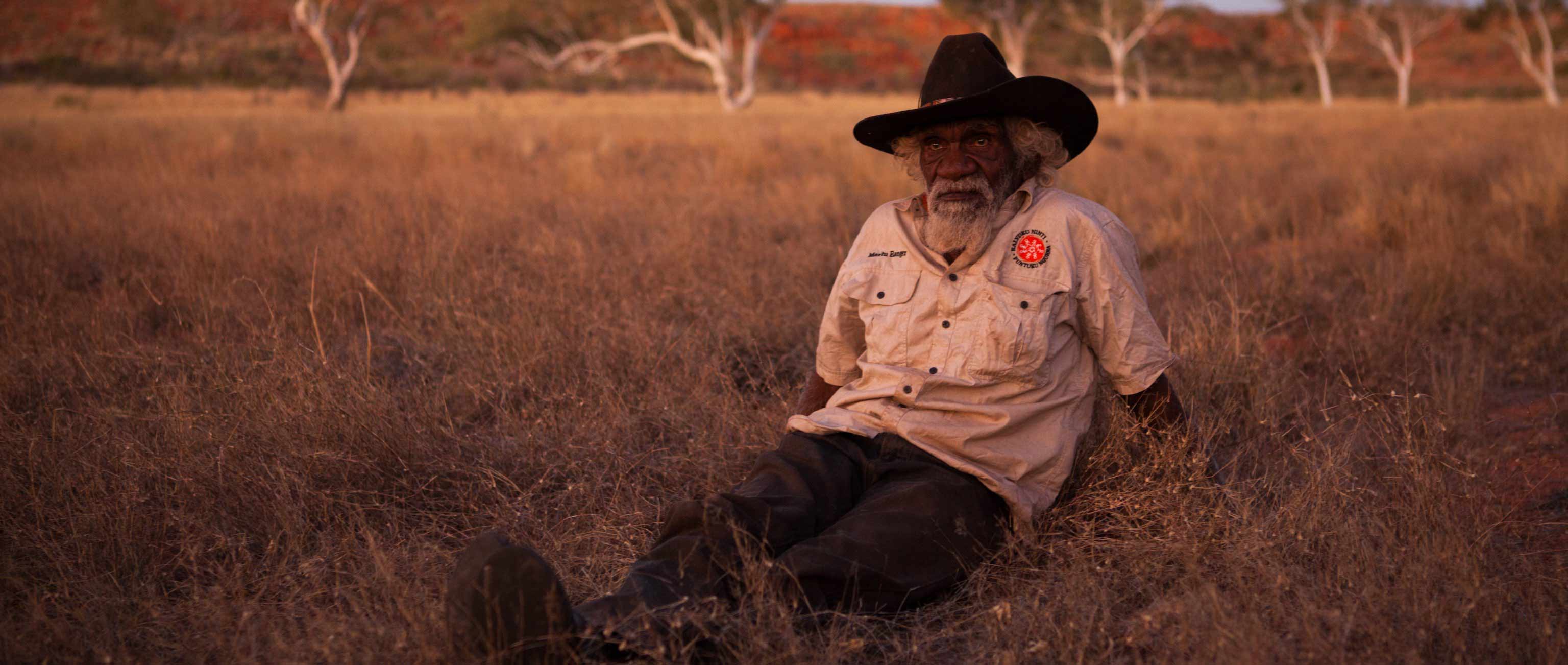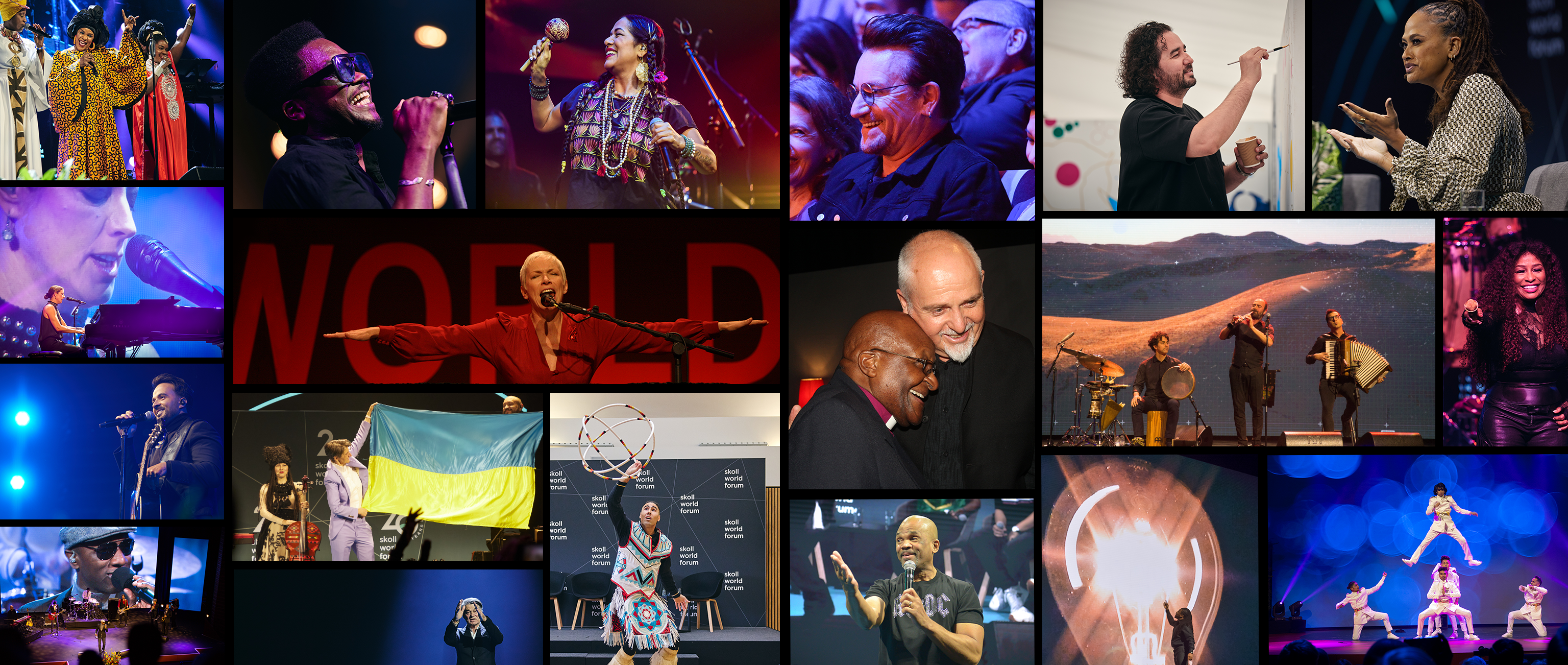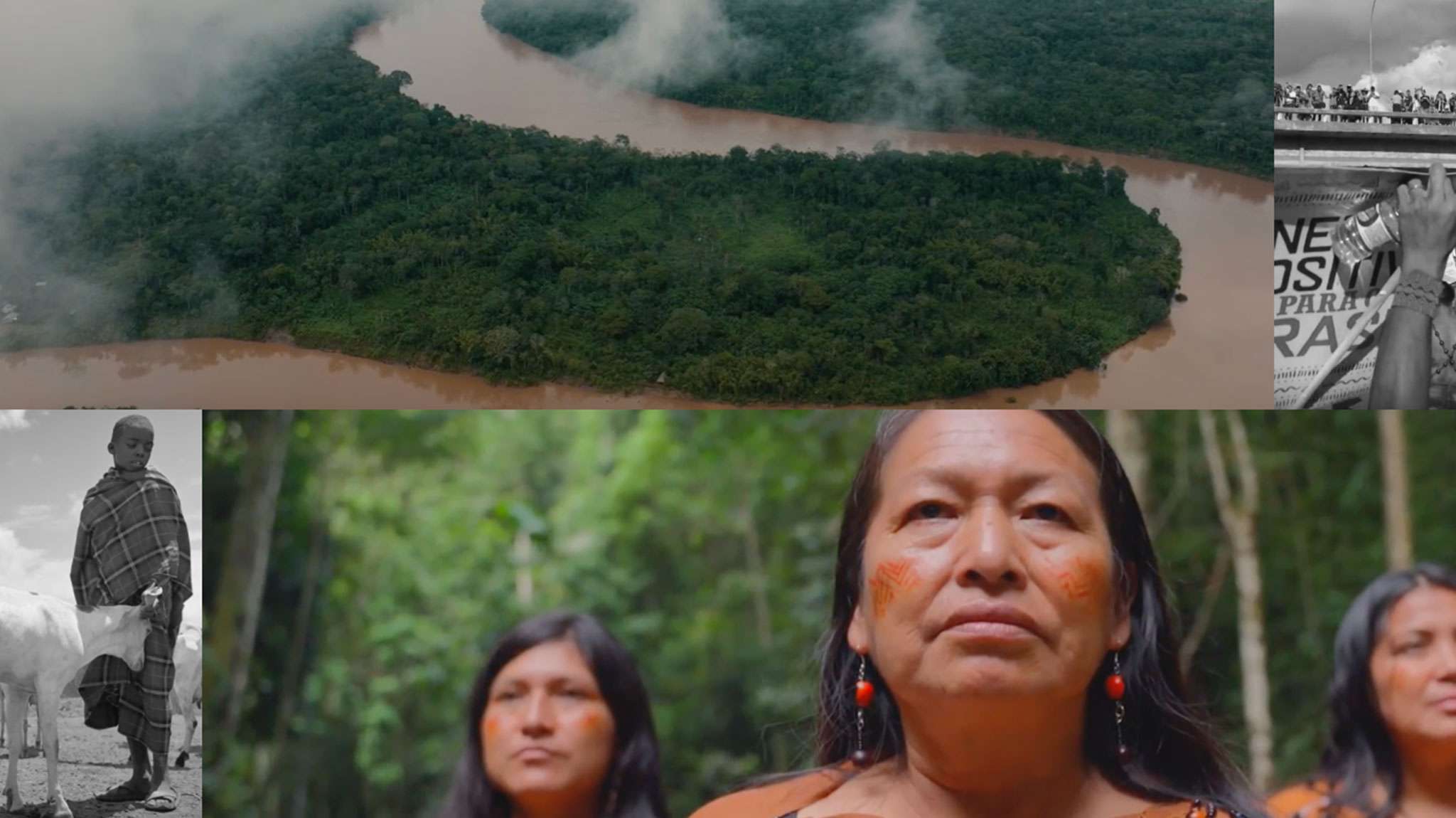As human beings, our brains are wired for stories. It’s how we expand our knowledge, and experience going places we’ve never gone, doing something perhaps we’d never even thought to do. But as much as we all love a good story, there’s no denying the power of actually “being there”—having a direct experience we can carry with us. Those experiences help define who we are in the world.
Being there is the power and promise of virtual reality. Sure, VR’s not sleek and intuitive yet, but suspend disbelief for a moment and imagine a world where social entrepreneurs can take people anywhere—to a village where every family has access to clean water, a school where students are thriving, a coral reef alive with fish. Not as a voyeur, invisible to those around them, but as a welcomed guest, introduced into a new world as a central character of the unfolding story.
This is the Collisions experience. Directed by artist and filmmaker Lynette Wallworth, Collisions is a virtual reality journey to the homeland of indigenous elder Nyarri Morgan and the Martu tribe, in the remote Pilbara desert of western Australia.
Nyarri shares not only his remarkable experience witnessing a nuclear test explosion in the 1950s, well before his first official contact with Western culture, but also the Martu tradition of caring for the land, understanding its inherent value, and ensuring it will be there—whole—for the generations that follow.
Once you enter Collisions, it’s a fully immersive experience. The sights and sounds of the Australian desert surround you. You meet Nyarri’s family, come to understand his world view, and then sit with him as the sun sets, watching a film of atomic bomb creator Robert Oppenheimer contemplating the frightening reality of what his brilliance has wrought. When you look around, you see the hill—rich with uranium—that Nyarri’s people seek to protect from mining companies.
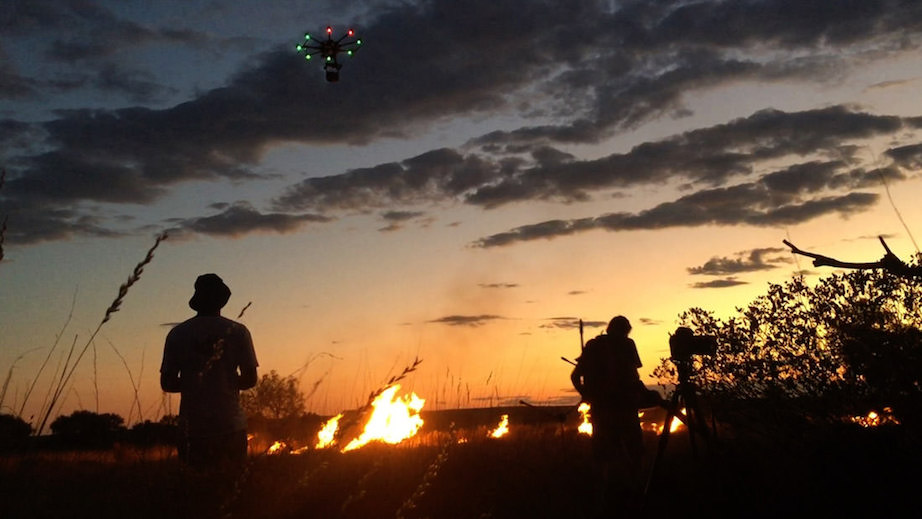
Making Collisions in the Pilbara desert
Wallworth, who narrates the piece, tells us: “There is what we do not know. And then there’s what we come to know. And it is what we do next that makes the difference.”
Experiencing Collisions makes the importance of indigenous land rights visceral, not just intellectual. Rather than witnessing Nyarri through the narrow portal of a film screen, his world is all around you, the vast sky above and the hard, dry ground below. You’ve been there, and now his story is part of your story.
The film premiered in January at the 2016 World Economic Forum in Davos, Switzerland, where Wallworth and producer Nicole Newnham set the explicit goal of getting international leaders to reconsider the short-term thinking that has led to the global climate crisis, in favor of the long-term thinking of indigenous cultures like the Martu.
Immediately after Davos, the film was screened for artists and filmmakers at the Sundance Film Festival. Land rights organization Landesa was there, speaking on a panel and hosting a reception that highlighted the power of land rights to protect the Martu from those who would infringe on their way of life.
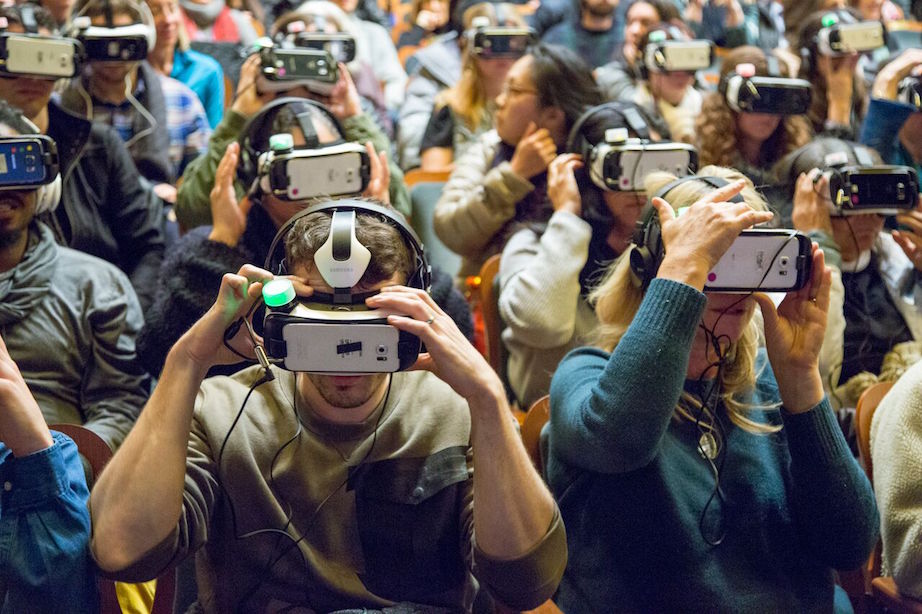
Collisions viewing at the Sundance Film Festival
Collisions has quickly become a powerful tool for land rights and nuclear non-proliferation activists, moving hearts and minds while also breaking new ground in technology and storytelling.
As a direct result of the Davos premiere, the film will be screened at the meetings of the Comprehensive Test Ban Treaty Organization in Vienna later this year. There is hope that Collisions may help to influence holdout countries like the US and China to ratify the treaty.
Collisions will also be featured at the 2016 Skoll World Forum, where social entrepreneurs and delegates from all sectors and geographies can meet with the filmmakers, and experience Nyarri’s story and the power of being there.
The visceral power of VR technology promises big impact. Imagine virtual reality in the hands of a social entrepreneur, amplifying under-represented voices, helping people see not only the world as it is today, but the world as it could be. Now that everyone can experience being there, where will we take them?
To experience Collisions for yourself, download the JauntVR film app on your smartphone. For best results, you’ll need a VR headset for your phone—Google Cardboard offers a low-cost option. You can also check out this 360° two-dimensional version of the film online.
Collisions is attracting lots of attention: read articles about the film in the Wall Street Journal, the Sydney Morning Herald, the Los Angeles Times, and The Verge.
Collisions from Nicole Newnham on Vimeo.
